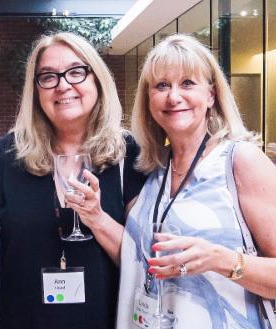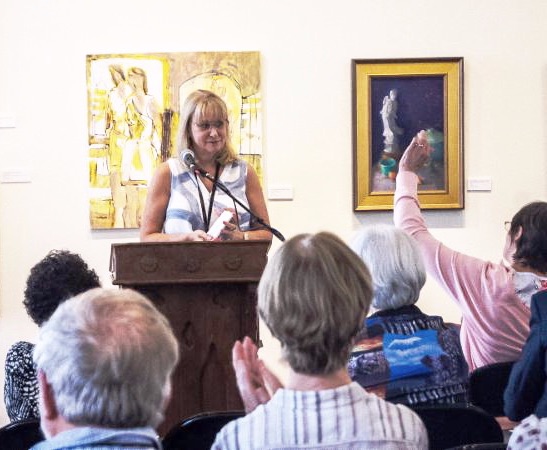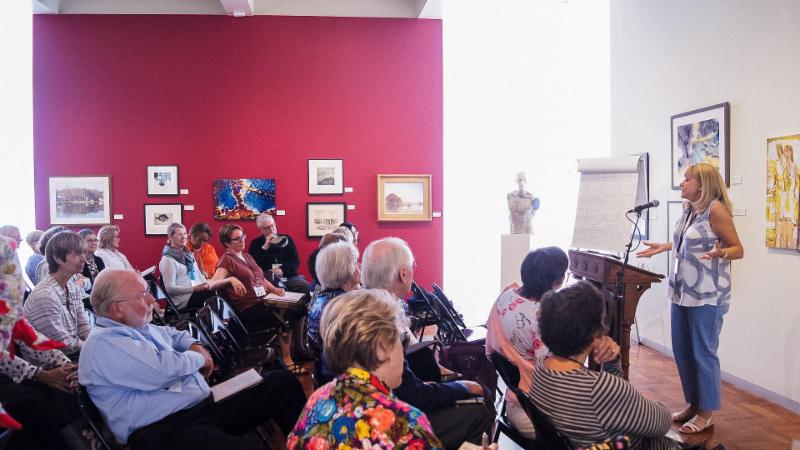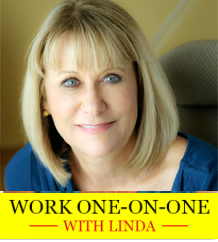The writing business is peculiar. One year you publish a novel or a memoir or a biography, and then as many as five years can pass while you write the next book. It takes an additional nine months or so for the publisher to get it into your local bookstore or up onto the digital outlets, and suddenly you have been out of the public’s eye for a very long time. How can you hope to keep your readership?You can consult with budding writers and edit their work as a way of earning an income and staying visible (feel free to view my consulting services here). Or you can write articles for publications that reach hundreds of thousands of people, though these assignments are now few and far between, because in our digital age magazines have gone from being popular to going under. And on-line blogs, like the Huffington Post, pay nothing at all.
You can teach–something I find particularly anxiety-provoking–but which brings some writers joy. Another avenue is to appear as a guest speaker whenever you are asked: be it at conferences or seminars or book clubs, you can connect with your audience, hoping they will seek you out as an editorial coach or even buy your book after your appearance. The last way to stay in touch is to develop an e-mail list and write mini-essays for your newsletter.
Recently, I was invited to participate in a “Writing Intensive” at St. John’s College here in Annapolis. An annual, well-attended conference, the Intensive is bursting with avid writers who are just starting out, as well as those who’ve been writing for a while; all of them want to know more about publishing and writing from the day’s multiple speakers. As good fortune would have it, the bestselling novelist Ann Hood–one of my favorite authors–was the keynote speaker and we had the time during lunch and afterward to get to know one another. This was one of the highlights of my day.
My talk was titled “Friend or Foe: The Impact of Memoir on Family.” Even though I knew the topic should be a popular one, I was very anxious before speaking; my hands trembled so hard that I had to put my file cards on the podium and squint at them. (Vanity dictated that I forgo using my reading glasses.) At the back of the room a photographer prowled, but eventually I gave up and put them on, more interested in being able to see than to worry about my appearance.

I learned before the event that a literary agent would present at the same time as I, in the room opposite mine; her subject was “How To Get Published.” I was certain she would draw all the participants. Who would come to hear me when instead you could be learning strategies that might help you find an agent or publisher?

At last I used an old trick to calm myself: I focused on a woman in the back row and imagined her sitting there in her underwear. This method humanized my audience, injected some humor into the situation, and made it much easier to relax.
My room filled up and every seat was taken. My audience listened closely to what I had to say, and I finished my speech flushed with success. I had relaxed, and that sense of ease made for a humorous and engaging talk: by the end, everyone was relieved to learn that writing a memoir with candor does not necessarily mean that you will alienate your family. I did sell a lot of books that afternoon–though the warm response I received from my audience became the most important aspect of my day.

When you confront your fears there can be a special payoff: it’s not impossible to surprise yourself with success if only you relax. I recommend challenging your nerves–whether it be for public speaking, or requesting a raise from your boss, or asking someone to marry you. Have courage and you will find what you seek.
Yours,

Have a comment or feedback? Talk to Linda!

